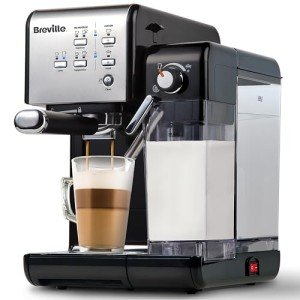The Next Big Thing In Home Use Espresso Machines
Home Use Espresso Machines: A Comprehensive Guide
Espresso machines have actually become a staple in lots of homes as coffee lovers look for to duplicate café-quality brews in the convenience of their cooking areas. The increase in popularity has actually resulted in a diverse market filled with various designs, functions, and prices. This short article aims to supply a useful overview of home use espresso machines, helping readers browse their alternatives effectively.
Understanding Espresso Machines
Espresso machines work by requiring warm water through finely-ground coffee under high pressure, leading to a concentrated coffee drink called espresso. There are a number of types of espresso machines classified based upon their brewing techniques and level of automation. The most common types include:
Manual Espresso Machines: These need the user to manage the pressure and water flow, permitting a more hands-on coffee-making experience.
Semi-Automatic Espresso Machines: These offer automatic control over water pressure, while the user by hand grinds and tamps the coffee.
Automatic Espresso Machines: With the push of a button, these machines automatically manage the flow of water, making it simpler to brew espresso with consistent outcomes.
Super-Automatic Espresso Machines: These all-in-one machines deal with grinding, tampering, developing, and even milk frothing, making them ideal for users searching for convenience.
Capsule or Pod Machines: These use pre-packaged coffee pods to create espresso with very little effort, but they restrict option in brewing strategies and tastes.
Table: Comparison of Espresso Machine Types
Type
Control Level
Alleviate of Use
Cleaning Level
Suitable For
Manual
User-controlled
Moderate
High
Coffee perfectionists
Semi-Automatic
Partial automation
Moderate
Moderate
Home baristas
Automatic
Fully automated
Easy
Low
Busy people
Super-Automatic
Fully automated
Very simple
Really low
Convenience applicants
Capsule/Pod
Totally automated
Very easy
Very low
Casual drinkers
Key Features to Consider
When selecting a home use espresso machine, it's vital to think about numerous functions that can substantially impact the quality of espresso and user experience.
Pressure: Look for machines that supply a minimum of 9 bars of pressure, as this is considered optimal for brewing espresso.
Boiler Systems: Single vs. dual boiler systems identify temperature stability and the capability to brew espresso and steam milk simultaneously.
Grinder: Integrated grinders enable freshly ground coffee, which enhances flavor. Consider machines with adjustable grind settings.
Milk Frother: For those who take pleasure in cappuccinos and lattes, an integrated steam wand or automatic frother is vital.
Size and Design: Consider your kitchen area area and aesthetic choices. Machines are available in various sizes, from compact to large setups.
Cost: Home espresso machines can vary from a few hundred to several thousand dollars, so it's essential to develop a budget before checking out options.
Pros and Cons of Home Use Espresso Machines
Pros
Cons
Benefit of developing coffee in the house
Initial investment can be high
Quality of espresso is frequently remarkable
Requires some ability, specifically with manual machines
Capability to try out flavors
Maintenance and cleaning can be labor-intensive
Can save money in the long run
Not all machines will match every coffee preference
Upkeep and Cleaning Tips
Preserving an espresso machine is crucial for prolonging its life and ensuring constant brew quality. Here are some useful ideas:
Regular Descaling: Minerals from water can develop up in the machine. Descale every 1-3 months, depending on water hardness.
Daily Cleaning: Rinse portafilters, baskets, and steam wands after each use to prevent coffee oils from developing residue.
Use Filtered Water: This can help in reducing mineral buildup and enhance the taste of coffee.
Change Gaskets and Seals: These components might break over time and should be changed to keep pressure and performance.
Read the Manual: Each machine has specific care guidelines; following these will make sure durability.
Frequently Asked Questions About Home Use Espresso Machines
**Q1: What is the very best budget espresso machine?The best budget espresso machine often depends upon specific needs, but models like the DeLonghi EC155 or the Breville Bambino are popular amongst users for supplying terrific value. Q2: How long do home espresso machines normally last?With correct maintenance, home espresso machines can last anywhere from 5 to 15 years, depending upon the quality of the machine and frequency of use. Q3: Can I make coffees and lattes with any espresso machine?While most espresso machines can make coffees and lattes, having a reliable
steam wand or frother is important for accomplishing the best milk texture.
Q4: Are super-automatic machines worth the investment?For those who focus on benefit and quick developing, super-automatic machines can be worth the investment, though they may lack some customizability in brew strength and flavor. Q5: What types of coffee beans are best for espresso?While Espresso Machines Under £100 plays a function, beans identified as” espresso “blends are generally roasted darker, creating abundant tastes and a velvety texture when brewed.
Purchasing a home espresso machine can change the day-to-day coffee regimen into something special, elevating home brews to café quality. By understanding the various types of machines, essential functions to think about, maintenance requirements, and weighing the
benefits and drawbacks, consumers can make educated choices that fit their individual preferences. As the espresso culture continues to grow, no matter the choice, every brew can be a tasty experience waiting to be enjoyed.  **
**